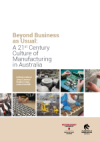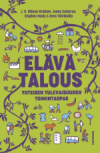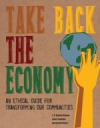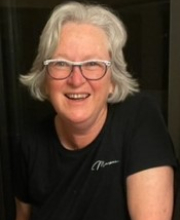| Commons The concept of the commons has gained traction across multiple disciplines as researchers explore ways we might live ‘in common’ with other people and the world around, and with consideration for the wellbeing of current and future generations. This chapter traces how the work of human geographers builds on research in other fields, including ecology, political science and history. It shows how human geographers attend to processes of commoning with examples drawn from commons on land, air and sea. |
| The Diverse Economies Approach This chapter, written for the Handbook of Alternative Theories of Political Economy, introduces the two primary theoretical traditions that have shaped diverse and community economies research and practice: anti-essentialist Marxian political economy and feminist poststructuralism. The chapter discusses the contribution of these two traditions highlighted how they have shaped the diverse economies and community economies approach. The chapter also includes a discussion of the ever-evolving practice of making community economies and some research directions for a political economy of possibility. |
| Post-capitalism now: A community economies approach This chapter in a book about post-capitalist futures outlines a community economies approach to post-capitalism. The chapter describes how a community economies approach to post-capitalist futures starts in the here and now with what is ‘at hand’ to build a more just and a more sustainable world and it highlights two strategies that community economies scholars and activists use to help strengthen existing post-capitalist practices. One strategy is to identify existing economic diversity and the ways it is being used for more just and sustainable economies; the second is to engage in actions to strengthen these economies.
These strategies are illustrated through examples of the work of community economies scholars in three urban settings: Christian Anderson and his research in New York City; S.M. Waliuzzaman and his research on informal settlements in Dhaka, Bangladesh; and Doina Petrescu, Constantin Petcou, Maliha Safri, and Katherine Gibson and their work in Paris. |
| Community Economies This is a chapter on Community Economies for the Routledge Handbook of Global Development. The chapter discusses how a community economies approach to development focuses on seeking out and strengthening already existing post-capitalist worlds. This involves community economies scholars using action research methods to work with community-based partners to help make post-capitalist activities more visible, and then to devise ways and means to build on and strengthen these activities.
The chapter demonstrates the approach by discussing three community economies projects in the Asia-Pacific region (in Cambodia, the Philippines, and Fiji and the Solomon Islands). These projects are characterised by attentiveness to local conditions and to local values and aspirations. Thus, a community economies approach to doing development differently starts by acknowledging the local context and valuing the diverse economic activities and possibilities that are already present. |
| Framing Essay: The Diversity of Enterprise This chapter overviews the diverse economies framing of the enterprise, a framing that is founded on two distinguishing features. First there is the understanding of class as a process of producing, appropriating and distributing surplus labour; and second there is the use of a ‘weak theory’ perspective. What results is the recognition of enterprise diversity such that the economic landscape is populated with a range of non-capitalist, capitalist and more-than-capitalist enterprises. In this diversity there are enterprises that are producing, appropriating and distributing surplus labour in ways that take into the wellbeing of people and the planet. These ethical commitments can be widened and deepened through political action that targets class dynamics within the enterprise and the broader factors that provide the conditions of existence for enterprise operations. The diverse economies framing thus helps to position enterprises as having a crucial role in building a more equitable and environmentally sustainable future. |
| Action Research for Diverse Economies This chapter discusses how research can be part of a social action agenda to build new economies. This research is based on collaborations between researchers and research participants, and involves three interwoven strategies. The first focuses on developing new languages of economy; the second, on decentring economic subjectivity; and the third, on collective actions to consolidate and build economic initiatives. The chapter illustrates how these strategies feature in three research projects. The first project was based in the Philippines and involved working with an NGO and two municipalities to pilot pathways for endogenous economic development. The second project was based in the US Northeast and used participatory mapping techniques to reveal the use and stewardship of marine resources. The third project was based in Australia and focused on environmentally sustainable and socially and economically just forms of manufacturing. These projects resulted in collective actions that created new economic options. |
| Beyond Business as Usual: A 21st Century Culture of Manufacturing in Australia This report is based on in-depth research with ten manufacturers. It finds that along with operating dynamic and viable businesses these manufacturers are fostering a culture of just and sustainable manufacturing that is helping to tackle the social and environmental challenges of the 21st century.
The manufacturers include public corporations and cooperatives, and range from the privately-owned engineering firm, Varley Group, which is headquartered in the Hunter region and has been operating since 1886 to the not-for-profit social enterprise and clothing manufacturer, The Social Outfit, which was established in Newtown in Sydney in 2014. 
|
| Elävä talous: Yhteisen tulevaisuuden toimintaopas An updated and adapted Finnish language version of Take Back the Economy: An Ethical Guide for Transforming Our Communities by J.K. Gibson-Graham, Jenny Cameron, and Stephen Healy, University of Minnesota Press, 2013.
Click here for the website that can be used in conjunction with the English language version of the book.

|
| Economic Geography, Manufacturing and Ethical Action in the Anthropocene: A Rejoinder We are thrilled by Vicky Lawson’s deeply appreciative response to the Roepke Lecture and the written article. In her response, Vicky does more than we could ask for by inviting economic geographers to think with us about ways of reworking manufacturing (and other economic activities) that center on care for the well-being of people and of the planet. Vicky goes to the heart of our project by highlighting the importance we place on looking for the ethical openings that arise in the current context of climate change and growing socioeconomic inequality. As she identifies, part of our armory includes tactics of attending to already existing possibilities that are hidden from view and reframing understandings of what an economy is for. |
| Roepke Lecture in Economic Geography—Economic Geography, Manufacturing, and Ethical Action in the Anthropocene In a world beset by the problems of climate change and growing socioeconomic inequality, industrial manufacturing has been implicated as a key driver. In this article we take seriously Roepke’s call for geographic research to intervene in obvious problems and ask can manufacturing contribute to different pathways forward? We reflect on how studies have shifted from positioning manufacturing as a matter of fact (with an emphasis on exposing the exploitative operations of capitalist industrial restructuring) to a matter of concern (especially in advanced economies experiencing the apparent loss of manufacturing). Our intervention is to position manufacturing for the Anthropocene as a matter of care. |
| Public Declaration: Just and Sustainable Manufacturing in Australia This public declaration was one outcome from the Reconfiguring the Enterprise Research Project. It was written and signed by the research team (Katherine Gibson, Stephen Healy, Jenny Cameron and Joanne McNeill) and the participating Australian manufacturers. The declaration was widely distributed, including to state and Federal members of parliament. It has contributed to ongoing discussions about the direction of Australian manufacturing in the 21st century. |
| New Framings and Practices of Critical Research This essay reflects on two chapters on the theme of 'social entrepreneurship, relationality and the possible.' The essay explores how these chapters take a relational view of the world by featuring the importance of the relationships between people, and between people and ‘things’. What emerges from the two chapters are insights into social entrepreneurship as a social change practice not so much for finding accommodations in what is already present but for shifting the frame of what is thinkable and doable. The two chapters document strategies for social change while also recognising that social change is an unpredictable and uneven process that involves responding to the unexpected. The chapters also invite reflection on the contribution of social research to the social change process by demonstrating how social research can be oriented towards ushering in the new, an orientation that is captured in the notion of research as a performative practice. |
Redrawing the Economy: Finland Report
This report details the workshops conducted in Finland as part of the Redrawing the Economy project. The workshops were conducted by one of the authors of Take Back the Economy, the translators of the Finnish version of Take Back the Economy, artists, and ten members of seven community economy initiatives from across Finland:
Workshops were also conducted in Colombia and South Korea, and there is a summary report for the Scholar-Activist Project Award from the Antipode Foundation.
The project also gave rise to the Redrawing the Economy website produced by Kathrin Böhm.

|
| Redrawing the Economy: Summary Report This is the summary report on Phase 1 of the Redrawing the Economy project. The report was prepared for the for the Scholar-Activist Project Award from the Antipode Foundation.
Following this phase of the project, the Redrawing the Economy website was produced by Kathrin Böhm. More information about the project is also available by clicking here. 
|
| Cultivating Community Economies This paper was commissioned by the Next System Project (co-chaired by Gar Alperovitz and by Gus Speth). The paper details community economies thinking, and covers the following topics:
- key commitments of community economies thinking
- understandings of transformation
- community + economy
- strategies for cultivating community economies (namely, applying the language of diverse economies and broadening the horizon of economic politics)
The paper includes examples of community economies from across the globe (including those that are 'local' an place-based (such as Hepburn Wind) to those that are 'global' (such as the Montreal Protocol on Substances that Deplete the Ozone Layer).
The paper concludes with a summary of over 20 examples of community economies research projects that are being undertaken across the globe by members of the Community Economies Collective. 
|
| Asset-based and citizen-led development: Using a diffracted power lens to analyze the possibilities and challenges Asset Based Community Development or Asset-Based and Citizen-Led Development (ABCD) is being used in a range of development contexts. Some researchers have been quick to dismiss ABCD as part of the neoliberal project and an approach that perpetuates unequal power relations. This paper uses a diffracted power analysis to explore the possibilities associated with ABCD as well as the challenges. It focuses on the application of ABCD in the Philippines, Ethiopia and South Africa, and finds that ABCD can reverse internalized powerlessness, strengthen opportunities for collective endeavors and help to build local capacity for action. |
| Navigating dilemmas of community development: Practitioner reflections on working with Aboriginal communities Intrinsically, community development involves navigating dilemmas. These dilemmas have intensified as neoliberal “arts of government” become more widespread and a “results agenda” more entrenched. Recent studies explore how community development practitioners manage the ambiguities of this current context. This article contributes by exploring how practitioners who work with Aboriginal communities in Central and Northern Australia navigate the dilemmas they encounter. Consistent with other studies, we find that practitioners draw on the foundations of community development practice while also responding to the specific characteristics of the setting. We discuss three principal strategies used by community development practitioners (patience, “letting go,” and negotiation), and we identify the implications for deepening community development practice and shifting the policy setting. This article demonstrates how even in a context that seems tightly prescribed by neoliberal arts of government practitioners are actively finding ways of valuing and supporting community knowledge, priorities, and time frames. |
| Commoning As Postcapitalist Politics Today the planet faces a genuine tragedy of the unmanaged “commons.” For decades an open access and unmanaged resource has been treated with the same sort of disregard as Hardin’s pasture was treated. The planet’s life-supporting atmosphere has been spoiled by “‘help yourself’ or ‘feel free’ attitudes” (Hardin 1998: 683). We are now faced with the seemingly impossible task of transforming an open access and unmanaged planetary resource into a commons which is managed and cared for. With the cause and impacts of global warming now beyond debate, we are being pressed to take responsibility and to act in new ways. But how are we to do this? What type of politics is called for? |
| Pursuing Happiness: The Politics of Surviving Well Together In this paper we use the concept of surviving well to reframe contemporary discussion of happiness and wellbeing in the context of international development discourse. While the attempts to move beyond metrics that privilege economic growth as the singular indicator of progress, it's equally true that our understanding of happiness and wellbeing needs to move beyond individual notions of contentment and towards a measure that allows people to thinking about their own needs in relation to others and in relation to planetary wellbeing. |
| Enterprise Innovation and Economic Diversity in Community Supported Agriculture: Sustaining the Agricultural Commons This chapter focuses on urban-based enterprises that are building direct links with rural producers and taking seriously the idea that urban consumers have a role to play in stewarding our agricultural environments and securing livelihoods for farmers. When these sorts of concerns are placed at the heart of the enterprise we find that economic innovations follow, and that along with producing benefits for farmers these innovations are also impacting employees and consumers. This results in businesses that are very different from the mainstream model of enterprise--the capitalist firm in which profit-maximization is at the heart. |
| On Experimentation This chapter reflects on the role that an experimental social research approach might play in coming to terms with a future in which the certainties of the past have gone and the future lies before us unknown. This experimental approach means setting aside the idea of research as a neutral and objective activity in which there is critical distance between the researcher and the object of study. Instead, research would entail making a stand for certain worlds and for certain ways of living on the planet, and taking responsibility for helping to make these worlds more likely and these ways of living more widespread. |
| Food Connects In this chapter, Jenny Cameron and Robert Pekin (from Food Connect, an innovative Community Supported Agriculture initiative operating in South East Queensland, Australia) reflect on the diverse economic practices that can be used to support sustainable and ethical food economies. |
| Cultivating Hybrid Collectives: Research Methods for Enacting Community Food Economies in Australia and the Philippines In this paper authors Cameron, Gibson and Hill discuss two research projects in Australia and the Philippines in which we have cultivated hybrid collectives of academic researchers, lay researchers and various nonhuman others with the intention of enacting community food economies. We feature three critical interactions in the 'hybrid collective research method': gathering, reassembling and translating. We argue that in a climate changing world, the hybrid collective method fosters opportunities for a range of human and nonhuman participants to act in concert to build community food economies. |
| Researching Diverse Food Initiatives: From Backyard and Community Gardens to International Markets This editorial introduces the papers that form this special edition on Researching Diverse Food Initiatives. The papers had their genesis in a series of sessions held at the Institute of Australian Geographers annual conference in September 2009. The sessions sought to draw together research on existing alternatives to mainstream agriculture and to further understand the role of research and researchers in contributing to the movements they study. This editorial focuses on two themes arising from the papers: the plethora of diverse food initiatives from across the globs; and the role of research in helping to strengthen this diversity. The papers in the special issue showcase research that uses very different approaches, including modelling, empirical description, and action-oriented research, and both quantitative and qualitative techniques, to contribute to building sustainable food systems. |
| Performative Research for a Climate Politics of Hope: Rethinking Geographic Scale, ‘Impact’ Scale and Markets Research is increasingly recognised as a generative and performative practice that contributes to shaping the world we come to live in. Thus part of the research ‘process’ involves being explicit about the worlds we want our research to contribute to and reflecting on how the concepts we use might help or inhibit this agenda. This paper is based on our commitment to strengthening the contributions that grassroots renewable energy initiatives might make to a climate changing world. However, to detect the potential of these initiatives, familiar concepts of scale and markets have to be recast. This paper uses insights from the academic literature and research into grassroots renewable energy initiatives to show how scale and markets can be rethought, thereby making it possible to detect some of the ways that grassroots renewable energy initiatives are helping transform ways of living and working, and building hope in a climate changing world. |
| Take Back the Economy: An Ethical Guide to Transforming Our Communities Take Back the Economy dismantles the idea that the economy is separate from us and best comprehended by experts. It demonstrates how the economy is the outcome of the decisions and efforts we make every day. Full of exercises and inspiring examples from around the world, it shows how people can implement small-scale changes in their own lives to create ethical economies. Click here for a copy of the introduction (provided with the publisher's permission).
Click here for the website that can be used in conjunction with the book.
A must read for those who seek to change the world bottom up — Massimo De Angelis
The single most farsighted and practical work enlightening us on the path to a steady transition towards a genuine postcapitalist world — Arturo Escobar

|
| Bodily Learning for a (Climate) Changing World: Registering Differences through Performative and Collective Research There is widespread agreement that current climate change scenarios mean we have to change how we live on this planet. Yet our current understandings of social and behavioural change seem insufficient for the task at hand. In this paper we explore Bruno Latour’s notion of ‘learning to be affected’, and we argue that this idea of bodily learning seems well-suited to thinking about how people can be moved to act in response to the human and nonhuman world that is all around us. We also argue that research can prompt and sharpen this form of embodied learning when it is conducted in a performative and collective mode that is geared towards crafting rather than capturing realities. We demonstrate how this might occur through the example of a community garden research project based on a collective bus trip-workshop method |
| Take Back the (Food) Economy: Lessons from the Hummingbird In Dirt!: The Film, Wangari Maathai, the Kenyan Nobel Peace Laureate and founder of the Green Belt Movement in Africa, tells the story of the tiny hummingbird who fights a huge bush fire drop by tiny drop of precious water. What can the little hummingbird tell us about ways of building a sustainable food future? This paper explores this question. |
| Diverse Food Economies This paper uses the Diverse Economies Framework to explore initiatives that have been developed to build more sustainable and ethical food futures, and to identify policy and reseach activities that might help strengthen these initiatives. |
| Business as Usual or Economic Innovation?: Work, Markets and Growth in Community and Social Enterprises This paper explores the different and diverse economic practices that two Community Supported Agriculture initiatives use to enact their ethical commitments. The paper considers what this means for current government support for social and community enterprises. |
| Growing the Community of Community Gardens: Research Contributions This paper discusses a performative research project conducted with community gardeners in Newcastle Australia. |
| ABCD Meets DEF: Using Asset-Based Community Development to Build Economic Diversity This paper reframes existing economic diversity as a community asset that can be built on for community and economic development. The paper outlines strategies for doing this, and draws on examples from the Philippines and Australia. |
| The Contribution of Community Enterprises to the Development of Regions This paper discusses the sorts of ethical economic decisions made by community enterprises, and how this contributes to regional social, environmental and economic well-being. |
| Teaching a Politics of Hope and Possibility Introduces three strategies for rethinking the economy with students. |
| Representing Marginalisation:Finding New Avenues for Economic and Social Intervention This paper describes the limiting ways in which people in marginalised areas are portrayed in policy and research, and introduces a different way of representing marginalised groups and the more enabling economic and social policies that result. |
| Alternative Pathways to Community and Economic Development: The Latrobe Valley Community Partnering Project Based on the Latrobe Valley Community Partnering Project, this paper introduces new ways of understanding disadvantaged areas, the economy, community and the research process in order to open up new ways of addressing social and economic issues. |
| Focussing on the Focus Group This chapter introduces the focus group as a method for qualitative social research. |
| Participatory Action Research in a Poststructuralist Vein This paper introduces a poststructuralist influenced participatory action research project seeking to develop new pathways for economic and community development in the context of a declining region. |
| Building Community Economies in Marginalised Areas This chapter elaborates an economic and social policy responses to build on the skills and ideas of marginalised groups. |
| Collaborating with Communities: An Assets-Based Approach to Community and Economic Development This paper outlines a collaborative approach to working with local residents in marginalised communities to develop community and economic development projects. The paper draws from action research conducted in the Latrobe Valley, Victoria, and Eagleby and Logan City, Queensland. |
| Feminising the Economy Exploring how recent feminist thinkers are attempting to add women into the economy. |
| Transforming Communities: Towards a Research Agenda A review of Australian research and policy interventions aimed at communities and regions from the perspective of the Community Economies Project. |
| Asset-based Community and Economic Development: Implications for the Social Capital Debate Explores some of the limits of measuring and monitoring social capital. |
| Negotiating Restructuring: A Study of Regional Communities Experiencing Rapid Social and Economic Change How two communities in regional Victoria, Australia are beginning to rethink their relationship to processes of economic restructuring. |







